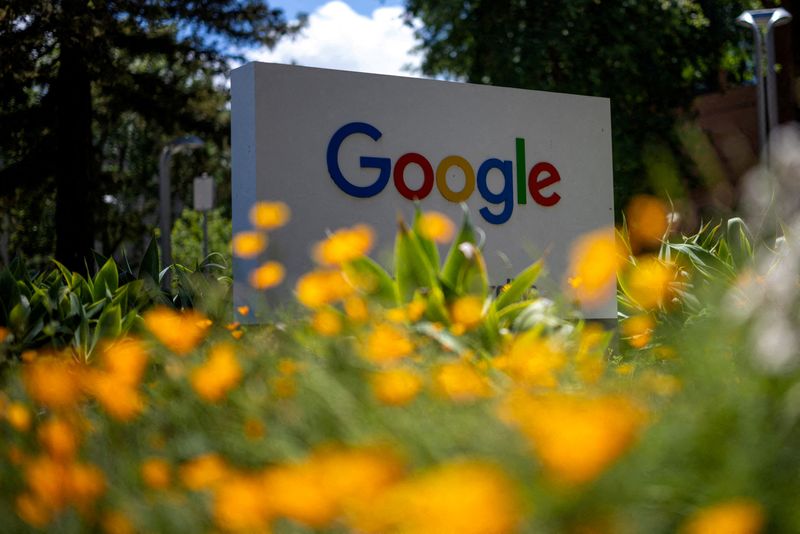By Jody Godoy
(Reuters) -The rapid pace of development in the world of tech, particularly in AI, spurred a judge’s cautious approach to curbing Google’s online search monopoly, revealing a hurdle for U.S. antitrust enforcers’ efforts to win their other cases against Big Tech.
U.S. District Judge Amit Mehta ruled last year that Alphabet’s Google holds an illegal monopoly, saying its dominance in online search “has gone unchallenged for well over a decade.” But he declined on Tuesday to impose stringent requirements that the government had called for, saying the rise of AI companies in the past two years has already created competitive pressure.
He noted that tens of millions of people use generative AI programs like ChatGPT, Perplexity and Claude in nearly the same way they look for information they previously found on Google.
“Innovation is a hare while antitrust law is a tortoise,” said Adam Kovacevich, head of the Big Tech-funded industry group Chamber of Progress.
Courtney Radsch, director of the Center for Journalism and Liberty at the Open Markets Institute, an anti-monopoly group, said the ruling sends the wrong signal to the AI sector.
“It’s really problematic. Because it means antitrust as it is being wielded now is too backward-looking, and it’s not looking at how to prevent illegal anticompetitive behavior,” she said.
Of the five high-profile ongoing antitrust lawsuits against Big Tech, several of which were initiated by investigations during the first Trump administration in 2019, the Google search case was seen as one of the strongest for U.S. antitrust enforcers.
Now, Big Tech companies facing antitrust lawsuits are likely to use the ruling to their advantage, said John Kwoka, an economics professor at Northeastern University.
“I think this gives an avenue, rightly or wrongly, for some of the other companies that are in the crosshairs to say that technology has made antitrust arguments irrelevant,” he said.
COMPETITION FROM AI
Antitrust regulators have homed in on the tech industry because they saw it as a crucial juncture between entrenching the dominance of big players and allowing startups to thrive.
The U.S. sued Google in 2020 and 2023, Meta Platforms in 2020, Amazon in 2023 and Apple in 2024, and opened probes last year into Nvidia and Microsoft.
In a process that takes years, antitrust cases typically proceed in two phases: a judge first decides whether the company engaged in anticompetitive conduct, and next tackles the question of what it should do to restore competition.
Story Continues
